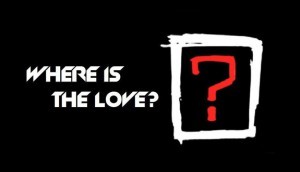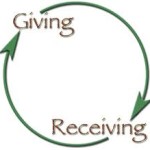There is a lie that has been told, to clinicians in particular, that it is wrong to get too close to patients. One is told to keep a healthy separation, perhaps to make the tragedy we often deal with somewhat more bearable. We have shaped medical ethics around the four core principles of beneficence (do good), non-maleficence (don’t do harm), autonomy (respect a person’s own wishes) and justice (treat everyone the same). But as the black eyed peas would ask us (!),
separation, perhaps to make the tragedy we often deal with somewhat more bearable. We have shaped medical ethics around the four core principles of beneficence (do good), non-maleficence (don’t do harm), autonomy (respect a person’s own wishes) and justice (treat everyone the same). But as the black eyed peas would ask us (!),  where is the love? Where is the love and compassion that makes us human and deeply connects us to the ‘other’ and even the ‘other, other’ (someone so different to us that we find it almost impossible to connect to them)?
where is the love? Where is the love and compassion that makes us human and deeply connects us to the ‘other’ and even the ‘other, other’ (someone so different to us that we find it almost impossible to connect to them)?
I was involved in a conversation recently with Phil Cass, a psychologist and CEO of a healthcare company, from Ohio, about this very subject. He told me some very stark facts. In the USA, the highest suicide rate is now amongst physicians and 67% of medics suffer with depression. Studies found that although these people were motivated by love, they found it very hard to receive love back from those they were giving love to.
 We have made the clinician-patient relationship a one way system, and we shut down the reciprocity of the love we give in the name of ethics and professionalism. But this is to our great detriment. Patients love and trust their doctors, nurses and therapists and this love could be a huge source of resilience, courage, support and hope. We must let down our guard and receive back the gift that we give in order to
We have made the clinician-patient relationship a one way system, and we shut down the reciprocity of the love we give in the name of ethics and professionalism. But this is to our great detriment. Patients love and trust their doctors, nurses and therapists and this love could be a huge source of resilience, courage, support and hope. We must let down our guard and receive back the gift that we give in order to become more healed ourselves. It will allow us to enjoy our work more, reconnect with the core motivation inside us and encourage us, because when we give and receive love it spurs us on to keep going when the system feel like it is against us.
become more healed ourselves. It will allow us to enjoy our work more, reconnect with the core motivation inside us and encourage us, because when we give and receive love it spurs us on to keep going when the system feel like it is against us.